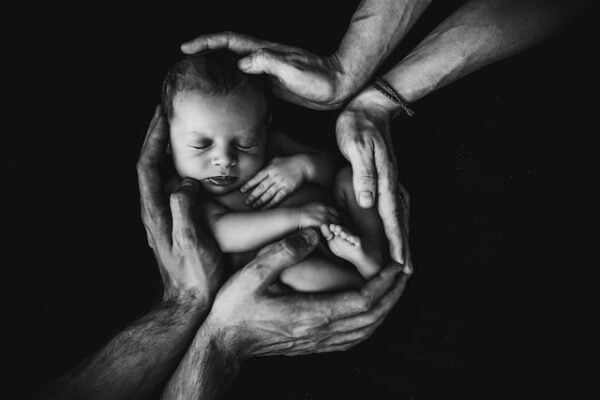Who Are We? The Way We Interpret an Action Determines How We Respond to It



How can we best understand ourselves and our history as a species? We humans have created so much violence, environmental degradation, inequality. Yet, we’ve also created incredible art, science, and love relationships. How do we emotionally and otherwise take in these absurd contradictions?

 This is not just an intellectual question. It’s a huge and infinitely complex one. It concerns the nature of our mind and body, what we’ve inherited from parents or biological evolution, and what by history and cultural evolution. It has tremendous social-political implications as well as personal. It can affect how we feel about, and how much suffering we cause, ourselves and others.
This is not just an intellectual question. It’s a huge and infinitely complex one. It concerns the nature of our mind and body, what we’ve inherited from parents or biological evolution, and what by history and cultural evolution. It has tremendous social-political implications as well as personal. It can affect how we feel about, and how much suffering we cause, ourselves and others.
Three friends from college and I zoom together once or twice a month. We often share poems, music, articles, suggestions, and questions. One recently shared article was particularly relevant to this question. It’s by Adam Kirsch and published in the January/February Atlantic. It’s titled The People Cheering for Humanity’s End: A disparate Group of Thinkers Says We Should Welcome Our Demise. It focuses on two opposing theories of where our species is headed, or where our evolutionary traits are driving us.
Most of us realize that the possibility of extinction is very real but would prefer to delay that ending as long as possible. But Kirsch says a variety of thinkers have challenged that assumption and revolted against humanity itself. The two most prominent of these theories are Anthropocene anti-humanism and Transhumanism.
The first states that our self-destruction is inevitable, but we should welcome it. Our species is destroying our home and the other creatures we share it with. What we most glorify in us, namely our reason and the scientific and technological achievements it spawns, is precisely what is destroying us. To preserve our home, we should leave it.
The second theory, Transhumanism, expresses a love for what the anti-humanists decry. Transhumanists imagine that some of our most recent and illustrious discoveries, like nanotechnology, and genetic engineering, will save us by allowing us to abandon the frail, destructive being we are now in favor of a new species that we’ve created. For example, a cyborg or hybrid of human and computer; or maybe a brand-new artificial intelligence.
Both theories are responses to the climate emergency we face, but they do so in opposite directions except, says Kirsch, the most fundamental. They both share the necessity for the demise of humans. And as I read the article and thought about my friends, what became clear was how our theories about life, and ourselves, are key to our responses, and actions. And this quality of mind and heart is precisely what most makes us human.
The theories, at least as far as I understand them from the article by Kirsch, do not deal enough with “why”— why do we act so destructively? Or, since it’s not all of us, why do so many of us act so destructively? Is it Ignorance? Self-centeredness? Greed?
Or maybe we’ve been so destructive due to patterns of thought and behavior inherited through cultural evolution as opposed to traits we’ve inherited through biological evolution. Has every human culture been so destructive? Maybe a culture that preaches we’re created in the image of God ⎼ that we must be fruitful and multiply and have dominion over all the earth and over every creeping thing ⎼ might be more narcissistic and less attracted by stewardship, less willing to control its fruitfulness, than one that emphasizes the interdependence of all beings.
The anti-humanism approach creates a self-fulfilling prophecy. By saying our suicide is inevitable it can influence us to not change our behavior and, thus, make our suicide inevitable. But maybe that’s their intention.
When I was teaching secondary school, some students voiced a response to the climate crisis similar to the anti-humanists. They said since we’re causing the situation, we deserve to die off. This was, for some, an acceptance of a responsibility they were too young to have to bear. But for others, it was a way to halt a difficult discussion.
And creating a being that’s half-human, half machine, as Transhumanists propose, could never successfully replace us. It would just create us in another form. If we could see beyond ourselves clearly enough to create a cyborg that doesn’t sacrifice the universe to our selfish shortsightedness, couldn’t we re-shape how we behave now?
Our species classification is Homo sapiens sapiens, humans twice wise. Us? Doubly wise? In what ways could we claim to be doubly wise?
Technically, the name differentiates us from sister species that evolved before we did, especially Neanderthals. But the name means many things. Anthropologists theorize that along with upright walking, what most characterizes humans is our hands, our physical ability to make fine movements, and our brains ⎼ or what our minds make possible. We create languages to help us communicate, imagine, think abstractly, make fine distinctions, and thus create both art and technology.
But this is only a small part of a complex picture. Due to our comparatively large heads, and the limitations of size placed on a woman’s pelvis by upright walking, a human full-term baby is born premature, before it’s fully developed, so it can fit through the birth canal. It completes its development out of the womb. This means we are born very vulnerable, unable to survive on our own, and our childhood is extended longer than other mammals. How does this help us?
Vulnerability creates both the possibility and necessity to change, adapt, and learn sophisticated skills in terms of relating to, caring about, and cooperating with others. Without love and care, we’d die. Back fifteen to a hundred thousand years ago or more, when we were surrounded by bigger, faster animals, “lions, tigers, and bears, Oh my!” ⎼ without cooperation we would’ve been killed off. Thus, what helped us learn, adapt, and relate was crucial to surviving in the past ⎼ and now.
The Greek philosopher, Aristotle, famously said humans are social animals. Our minds can incorporate others into ourselves. Our feelings and ways of understanding are constructed by imitating, creating mental models of how others think and behave. We use these models to secure the love and companionship ⎼ food and shelter ⎼ we need. Our emotions work to tie together feelings and thoughts ⎼ the models we create ⎼ with the people around us, so we are energized to act. So, we’re twice wise in that we can mentally mirror, empathize, feel, and imagine how others might feel and act in order to understand them and determine how we should act.
We are also twice wise in that we don’t just know, don’t just sense, but know what we know. This is one meaning of being conscious. To be conscious is not just to be awake and aware, but to know with or with knowing.
We are, somewhere in us, aware of what we’re aware. We don’t just hold a fork in our hands, but know we hold the fork and where it is, so we can put food in our mouths instead of in our laps. We share this awareness with other conscious beings. What we probably don’t share is the degree and extent of what we can learn, especially how much we can learn from reflecting on both the physical world, and on the universe of mental-emotional experience.
We use our brains to form models or theories, and to be aware of what they tell us. These models are not reality but can help us understand reality better and survive. We not only form models of other people and our world, but of ourselves. But models are abstractions, always incomplete. They can be totally wrong or go out-of-date and become harmful. By being doubly aware, we can self-reflect, be aware of our models and beliefs, so we can change and expand them. We can learn to more fully and clearly include other species, our environment, and other aspects of the world as ourselves. It can be difficult, but we can do it.
So, if we are to survive this crisis, we must be aware that any theory we form about ourselves, and reality, becomes part of the reality we face. It must increase our understanding of the situation we’re in and our awareness of the consequences of the theory itself, or it undermines us. But how many cultures teach this directly? How many of us mindfully monitor our thinking and acting, are metacognitive or think about our thinking like this?
The central problem right now is a culturally-politically induced ignorance. Instead of teaching lies, greed, hate, and selfishness, as some powerful people and institutions amongst us have done, why can’t we teach ourselves wisdom, or at least good, mindful critical thinking? Wouldn’t we be better off teaching compassion instead of hate?
Both Anthropocene anti-humanism and Transhumanism say we are flawed beings, and unchangeably so. If we’re willing to let ourselves die off, why can’t we instead ready ourselves to live? We can’t change history. Yet how we respond to it is up to us. Our culture and beliefs give birth to how we perceive what’s possible now. Reality is change. Life is change. And never has that expression had more meaning than now.
—
Photo by Isaac Quesada on Unsplash



